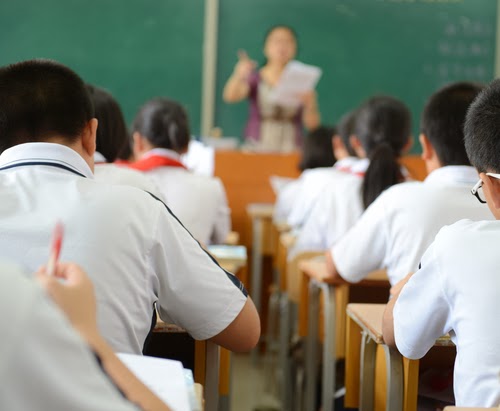China links economic prosperity with educational reforms
- By Eugene Clark
 0 Comment(s)
0 Comment(s) Print
Print E-mail China.org.cn, March 13, 2015
E-mail China.org.cn, March 13, 2015
One of the important topics for the current NPC and CPPCC sessions in China is educational reform.
The realities of globalization and the need for China to move up the value stream of manufacturing and other economic activities require a highly educated and talented workforce able to compete on terms with the rest of the world.
|
|
In education, as elsewhere, China's governance system has demonstrated the ability and commitment to avoid short-term thinking and shallow solutions. Instead, policy planners have forged a comprehensive strategy and focused especially on medium and long-term educational reform.
The National Plan for Medium and Long-term Education Reform and Development for 2010–2020 first identifies present shortcomings, such as recognition that:
- The concept of education, teaching methodologies and content are outdated;
- Study burdens on students is mainly too burdensome;
- Students lack adaptability and resilience;
- Skilled and innovative professionals are in short supply;
- Education systems are inflexible;
- Schools lack autonomy;
- Access to education is not equitably distributed across rural areas and ethnic groups;
- Education funding is not meeting demand.
Overarching goals
The principal areas of growth to 2020 include:
- Preschool and kindergarten, up 25 percent (to 40 million students);
- Higher education, up 16 percent (to 35 million students);
- Participation in further or continuing education almost doubling to 350 million students.
Desired outcomes
Achieving these goals will result in a doubling of the population with higher education qualifications and a significant increase in the proportion of the working population with a senior middle school or higher education.
This requires:
- Upgrading teacher qualifications and benchmarking teaching results, and enhancing school autonomy;
- Strengthening provincial governance of education;
- Promoting international exchange and cooperation.
International research increasingly recognizes the importance of pre-school education, so the plan emphasizes the need to move towards a model of universal access gradually reaching three-year preschool as the desired outcome. There is a need to strengthen access to preschool in rural areas and train a large contingent of high-quality kindergarten teachers.







Go to Forum >>0 Comment(s)